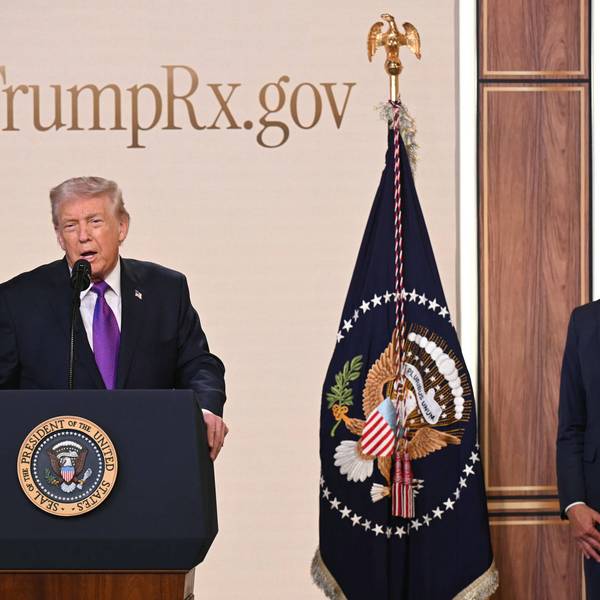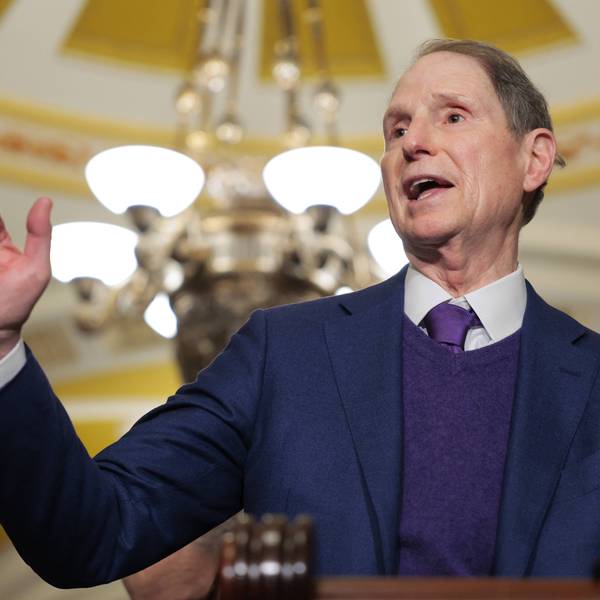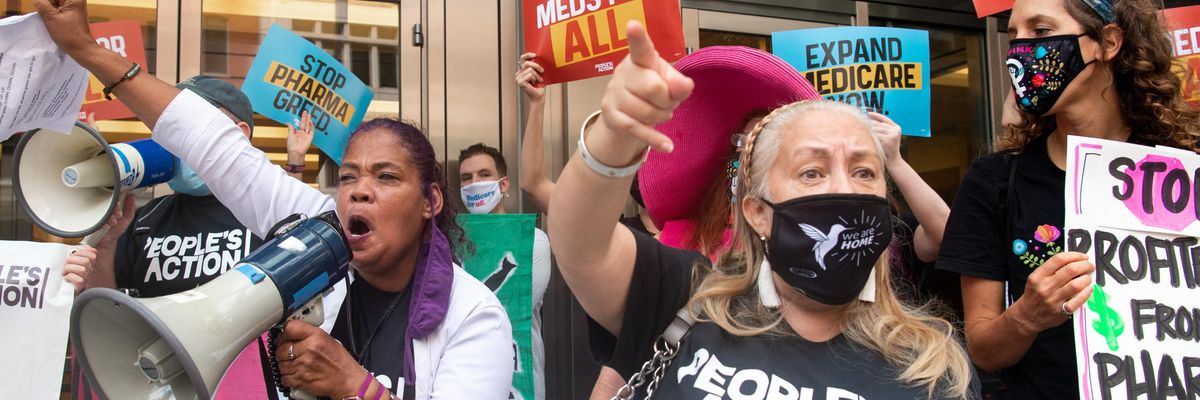Patient advocates on Monday condemned the U.S. pharmaceutical industry for ushering in the new year with price hikes on more than 440 medications, a move that came as congressional Democrats' plan to lower prescription drug costs remained stuck due to Sen. Joe Manchin's persistent obstruction.
"Clearly, the need for drug pricing reform is as urgent as ever."
According to the healthcare firm GoodRx, the prices of 434 brand-name drugs and eight generic medicines were increased by an average of 5.2% and 4.2%, respectively, beginning on January 1, 2022.
The largest hike came courtesy of Pfizer, which raised the price of its anti-inflammatory medication Solu-Cortef by nearly 17%. The price boost took effect after Pfizer had a massively profitable 2021 thanks in large part to its coronavirus vaccine, which benefited from public funding and U.S. government-developed technology.
"At a time when Americans are struggling with the surging omicron variant and prices for prescription drugs that are four times what other wealthy nations pay, Big Pharma began the new year yet again hitting Americans with unjustified and widespread price hikes," David Mitchell, a cancer patient and founder of Patients for Affordable Drugs, said in a statement.
Mitchell said the price increases bolster findings of a nearly three-year House Oversight Committee probe showing that the pharmaceutical industry has "raised prices with abandon" and "manipulated the patent system" to prevent fairly priced generic competition.
"Clearly," said Mitchell, "the need for drug pricing reform is as urgent as ever--Americans are struggling to afford the medications they need and have waited too long for relief."
The Build Back Better Act, Democrats' flagship social spending and climate legislation, includes provisions that would allow Medicare to directly negotiate the prices of a limited subset of prescription drugs and penalize pharmaceutical companies that raise prices faster than the rate of inflation.
But the legislation--which the pharmaceutical industry spent big to water down and obstruct--is currently stalled in the evenly divided Senate thanks to Manchin, who is refusing to support the popular bill.
"He can't be the final word. Too much is at stake," Margarida Jorge, head of Lower Drug Prices Now, said in a statement last month after Manchin announced his opposition to the current version of the Build Back Better Act.
"The Senate must immediately find a way to lower drug prices in line with the framework agreed to by senators and the White House," Jorge added. "Families can't afford to wait."
According to a recent study conducted by the polling organization Gallup in partnership with the nonprofit West Health, roughly 15.5 million U.S. adults under the age of 65 and 2.3 million seniors were unable to afford at least one doctor-prescribed medication in 2021, a finding that bolstered calls for government action to rein in sky-high drug costs in the U.S.
A Government Accountability Office analysis released in April 2021 estimated that the U.S. pays two to four times more for prescription medications than other wealthy nations.
Mitchell said Monday that the drug pricing-related provisions of the Build Back Better Act would "directly take on Big Pharma's price gouging" and "deliver relief to patients" by capping out-of-pocket costs for Medicare Part D beneficiaries, among other changes.
"These reforms are overwhelmingly supported by more than 80% of voters--Democrats, Republicans, and Independents alike--and will fight inflation by holding the line on premiums and health care costs for patients, employers, employees, and taxpayers," Mitchell added. "Patients are counting on Congress and the Biden administration to deliver drug pricing reforms immediately in this new year."




